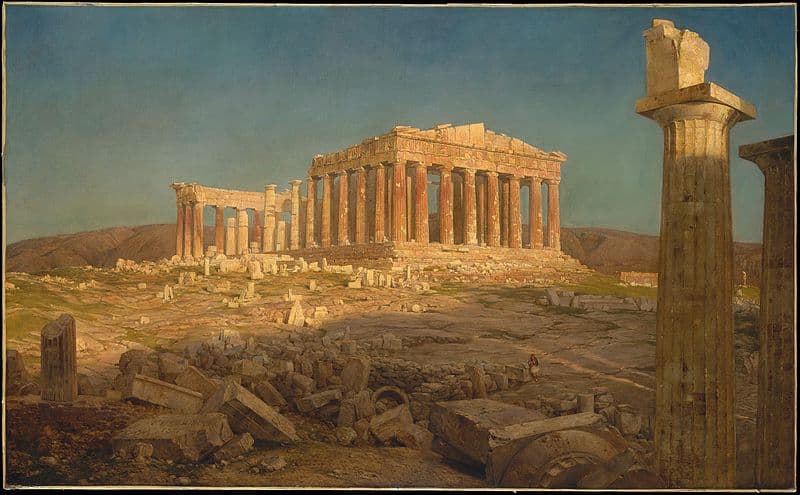Pressure Rises on Britain Over Elgin Marbles After Vatican ‘Donates’ Parthenon Sculptures to Greece
The latest case of a Western museum bowing to demands for restitution.

ROME — The Vatican and Greece finalized a deal Tuesday for the return of three sculpture fragments from the Parthenon that have been in the collection of the Vatican Museums for two centuries, the latest case of a Western museum bowing to demands for restitution.
The Vatican has termed the return an ecumenical “donation” to the Orthodox Christian archbishop of Athens and all Greece, not necessarily a state-to-state transfer. But it nevertheless puts pressure on the British Museum to conclude a deal with Greece over the fate of its much bigger collection of Parthenon sculptures.
The head of the Vatican city-state, Cardinal Fernando Vergez, signed an agreement to implement the “donation” during a private Vatican Museums ceremony with the Greek culture minister, Lina Mendoni, and a representative of the Orthodox Christian archbishop of Athens and all Greece, His Beatitude Ieronymos II.
The envoy, Father Emmanuel Papamikroulis, told the Associated Press that the Greek Orthodox Church and archbishop were grateful to Pope Francis for the deal.
“It has taken place at a difficult time for our country, and it will hopefully provide some sense of pride and happiness. I hope this initiative is followed by others,” he said in a telephone interview from the Vatican, where he was touring the gardens after the signing ceremony.
“This initiative does help heal wounds of the past and it demonstrates that when Christian leaders work together, they can resolve issues in a practical way,” Father Papamikroulis added.
The fragments are expected to arrive at Athens later this month, with a March 24 ceremony planned to receive them.
The British Museum has rebuffed decades of appeals from Greece to return its much larger collection of Parthenon sculptures, which have been a centerpiece of the museum since 1816.
Earlier this month, however, the chairman of the British Museum said the U.K. and Greece were working on a deal that would see his institution’s Parthenon Marbles displayed at both London and Athens.
The 5th century B.C. sculptures are mostly remnants of a 520-foot frieze that ran around the outer walls of the Parthenon Temple on the Acropolis, dedicated to the ancient Greek goddess of wisdom, Athena.
Much of the frieze and the temple’s other sculptural decoration were lost in a 17th-century bombardment, and about half the remaining works were removed in the early 19th century by a British diplomat, Lord Elgin.
